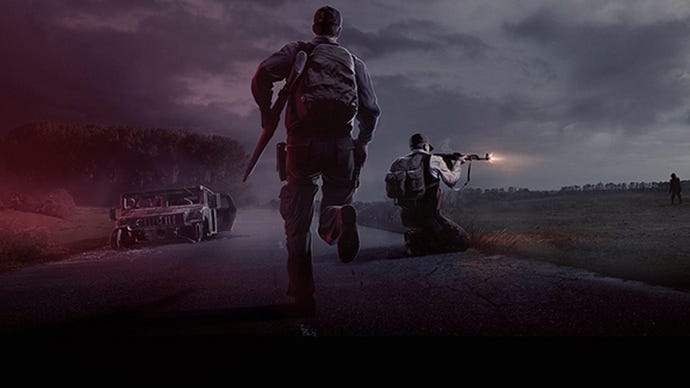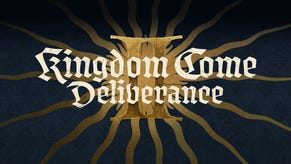From Dark Souls to DayZ: the high-risk, high-reward cycle of masochistic gaming
What is it about games that punish us for failure that is so damn addictive?
"Some triple-A games will quietly masturbate themselves to completion if you just hold the left analog stick forward."
If you spend a lot of time reading comment threads on video game websites, you'll probably be familiar with the opinion that games are getting easier. Older gamers often grumble that the industry push for "accessibility" has stripped the challenge out of games, and younger gamers are often so hyped up on the ultra-competitive multiplayer culture that they're incapable of admitting that they find a game difficult for fear of being called a wuss.
The drive to open blockbuster games to larger audiences has certainly left us with some amusing anomalies (some triple-A games will quietly masturbate themselves to completion if you just hold the left analog stick forward), even as the difficulties of the ubiquitous twin-analog, eight-button control scheme remains a barrier to bringing new players in. But over the past few years we've seen a resurgence of interest in - and sales of - games that demand much, much more from their players.
If it were one or two divisive titles we could dismiss this phenomenon as a blip in history, but we're talking about some of the most popular and celebrated titles in recent years. What is it about masochistic games that has sucked us in, chewed us up, spat us out - and left us begging for more? Let's look at a couple of case studies.
Dark Souls
Dark Souls is the poster child for brutally difficult games with huge mainstream recognition. Building on the cult success for forerunner Demon's Souls, Dark Souls came into the world with a reputation for being hard as a technophile let loose in Yamada Denki. That's an irresistible lure for many gamers who fancy their 733t sk177z cannot be topped, and especially for Xbox 360 fans who had been denied a crack at Demon's Souls and wanted to prove themselves tougher than their PS3 brethren. Namco Bandai's marketing didn't miss a trick in capitalising on this fearsome reputation, and the rest is top ten chart history.
"The success of Dark Souls is that it is beatable, once you learn the rules. Physical dexterity is required, but it’s not beyond the average gamer."
You'll still hear the occasional dissenter, of course. The whole Souls formula evolved from the old-school days, when Japanese gamers would band together on bulletin boards to figure out how to play largely incomprehensible western RPGs. As such, the series can feel deeply unfair to beginners: one-hit kills, ambushes, inexplicable strengths and weaknesses, and a supreme lack of hand holding come as a serious shock to the system. "Why would you do this to yourself?" detractors ask. "Why not go play something fun?"
For those who push on through, or who have a friend on hand to help them weather the initial adjustment period, the fun soon becomes apparent. A dear friend of mine tried to play on a couple of occasions, giving up after an hour or two each time. On his third go, though, he was determined to push on through, loaded up with tips and tricks from the internet. He still didn't seem to be enjoying himself very much, but one day he messaged me to say something like "I'm just sitting here thinking: I bet I could beat that boss if I just tried such-and-such. I just want to load it up and have one go. Is this how Dark Souls is supposed to feel?"
Yes, it is. The success of Dark Souls is that it is beatable, once you learn the rules. Physical dexterity is required, but it's not beyond the average gamer - as long as they are mindful of the rules. Slowly exploring and figuring out what the game is throwing at you (or reading a walkthrough and consulting friends, in the spirit of the original premise) is a delight, and the first time you sit bolt upright in bed and exclaim "I bet he can't shoot me through that pillar but I could totally lob a fireball around it" or similar is when you know it has its hold on you.
The mechanics of Dark Souls and friends are actually pretty generous: your time is not wasted when you die, as you respawn at the last checkpoint activated - although these are few and far between. Any items you find remain yours, and any bosses you kill remain dead. And even souls, which represent currency and XP, will only be lost if you die twice in a row without reaching your own bloodstain. Plus, there are no survival mechanics such as hunger or thirst to hurry you into trouble when you should be exploring carefully, and From Software is not above celebrating exploits if they're clever enough.
Next: A look at DayZ and what both games have in common.
DayZ
Like Dark Souls, DayZ presents a fragile player character who can be offed with a few blows, but in general it is a far more masochistic experience. Those who ask "what is the point of Dark Souls?" may be completely lost here - Dark Souls has a story and a definite sense of progression, whereas DayZ offers no end goal of any kind besides the promise of eventual death.
"Dark Souls has a story and a definite sense of progression, whereas DayZ offers no end goal of any kind besides the promise of eventual death."
DayZ is definitely a survival game. Players have to keep themselves alive, first and foremost - and that means scavenging for food. They have to evade or kill the zombie hordes, and that means transport or weapons. They have to have medical supplies to survive wounds taken in combat or through careless exploration. And they have to keep other users from stealing what they have, or killing them outright.
Through all of this, DayZ is uncompromising: if you die, you lose everything. Everything. Characters can survive anywhere from weeks to bare minutes, but they do not last, and they leave no legacy beyond what impact they have on other player's experiences - for example, as a handy source of supplies for the bandits who sniped them.
What makes DayZ particularly compelling is the opportunities it offers for player-created stories. Crawling with bandits and clans of trolls, it's a world where strangers immediately treat each other with distrust because each may hold the power of life and death. It encourages meta-gaming as friends pretend to be strangers, lure victims in, and loot their corpses.
Learning your way around DayZ's maps, figuring out which equipment and supplies are worth gambling on and learning the ways of the community gradually elevates the game from insta-kill territory to an absorbing time-sink. Playing DayZ with a group of well-equipped, experienced friends can be a ball; playing alone is a tense and a furtive affair in which players crawl about, ears and eyes straining. Both experiences end in death. Logging off only delays the inevitable.
What they have in common
On the surface, Dark Souls and DayZ are wildly different games: one a linear action RPG with progression, the other a first-person shooter sandbox with no acknowledgement of player actions. Yet both of these games are masochistically difficult, rewarding players for their skill and then taking it all away again at the drop of a hat (in Dark Souls, it does this by escalating difficulty or introducing new kinds of enemy requiring new equipment or tactics, in DayZ, it just literally takes everything away again).
"The bigger they are, the harder they fall, and everyone likes the noise when they knock something down."
The other thing they have in common is runaway success. Dark Souls spawned a sequel, which also sold strongly, and developer From Software is now making Bloodborne, a PS4 exclusive that looks to borrow much of the now-famous formula. Initially a mod for Bohemia Interactive's ArmA 2, DayZ drove sales of its parent game so sharply Bohemia wisely picked it up for full development. Even in Early Access state, it has sold over 2 million copies.
What is it about the high-risk, high-reward gameplay loop of both these games that pulls us in? I think the words "high-reward" are enough to explain part of the appeal, but the "high-risk" part is less explicable. Why does anyone enjoy chancing their time and effort to an uncaring game that is deliberately designed to try and rob you of it at every opportunity?
"Masochism" is the joking explanation, but there are some basic underlying psychological hooks. The first is the rush of overcoming a challenge; making progress in difficult games feels much more significant than in a game that practically plays itself. The second is the sense of exclusivity that results from being among the "elite" who succeed; even in a game like Dark Souls, where stats reveal there are millions of others who have done as well or probably even better than yourself, you know there are others who just hopelessly mash buttons and give up in disgust, and you can enjoy feeling superior to them.
Does that explain the popularity of both games? No, of course not; there are lots of complicating factors, like the mysterious hype-beast of gaming culture, and nostalgia for the teeth-gindingly challenging games of old. But at the heart of it is a simple truth: the bigger they are, the harder they fall, and everyone likes the noise when they knock something down.













